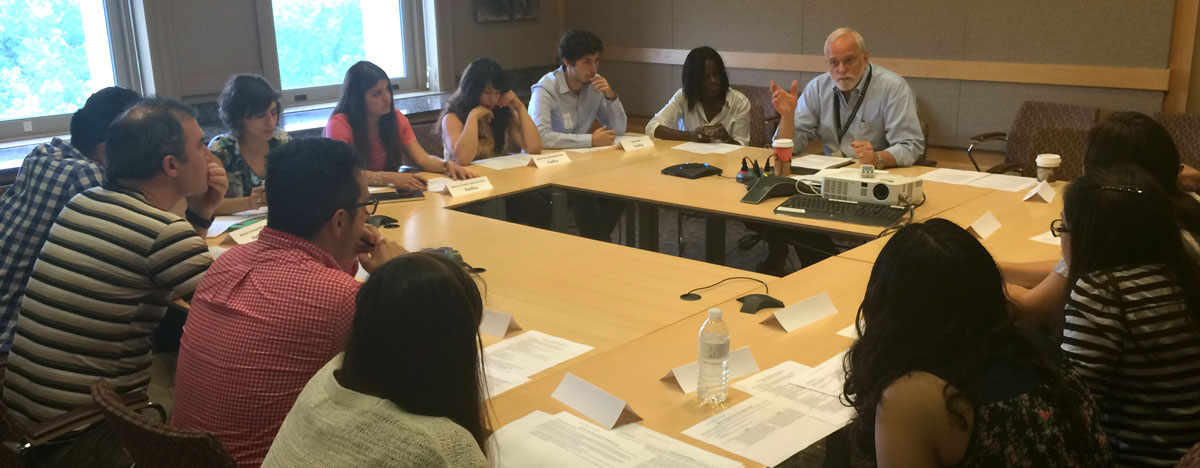CSPO News
Students learn to navigate the complex world of science diplomacy
CSPO's new Science Diplomacy and Leadership module of the Science Outside the Lab (SOtL) series
In January 2013 Marga Gual Soler, a few months shy of earning her PhD in molecular cell biology at the University of Queensland, was on the standard path toward becoming a researcher. But after so many isolated hours in a lab, her area of vision often confined to the microscopic world of traveling proteins, Gual Soler was feeling disconnected.
“I had lost the sense of meaning and impact of my work,” said Soler.
She decided to veer off the typical science PhD path and set her sights on a much wider world through an internship with the United Nations. Now she’s training other science graduate students to leverage their science training towards alternative careers that directly impact global issues.
Though they typically award internships to students in law, business, and the social sciences, she convinced them that she could help out as the UN’s primary focus in 2013 happened to be science, technology, and innovation (STI) for development.
While observing UN meetings on such topics as climate change, food security, HIV, malaria, and environmental pollution, Gual Soler was surprised to see that there were almost no scientists among the diplomats. Though the UN regularly brought in scientists to give statements about the topics, the UN didn’t have the capacity to employ full-time scientists to participate in the subsequent in-depth negotiations.
“All of these challenges and debates require scientific expertise to inform them,” said Gual Soler. “If scientists aren’t present, then the diplomats need to be scientifically prepared to talk about CO2.”
Gual Soler saw this as opportunity. Why not either proactively train scientists to be diplomats themselves or improve their ability to communicate science to diplomats?
Blog post/report from the 2015 cohort of Science and Diplomacy Leadership.
